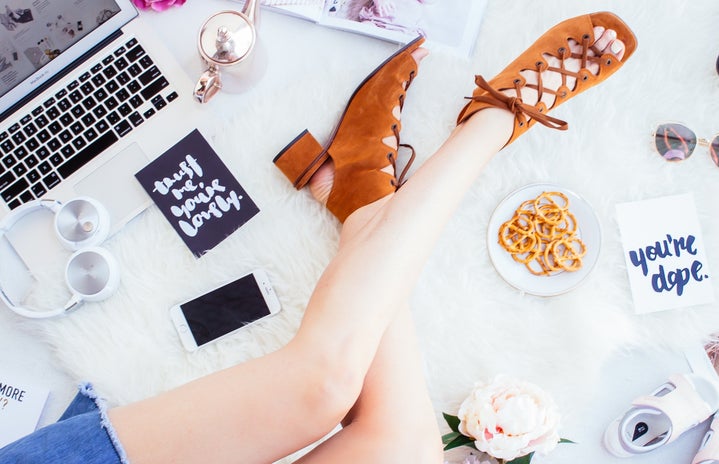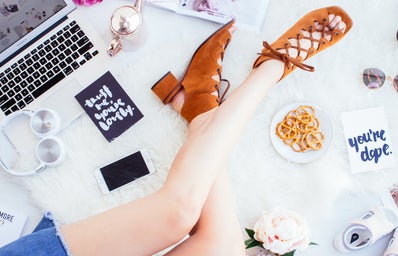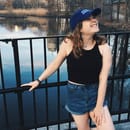By Virginia Mason
On October 27th, a mass shooting at the Tree of Life Synagogue in Pittsburgh, PA left 11 people dead and 6 injured. Though feelings of shock were widespread, and for many of us in the Jewish community, this event has been a long time coming.
I grew up in a Conservative Jewish community in Hoboken, NJ. My dad took my sister and I to services every Saturday morning at the United Synagogue of Hoboken since before I could walk. I would sit in class, learning about different aspects of Jewish life while my dad was in the sanctuary with the rest of the adults, praying. Every Saturday, at the end of services, all of the kids were invited into the sanctuary and asked to lead the congregation in the last few prayers. We would always debate what tunes to do. Would we do the longer, campy version because it was more fun, or the short, slow version because we were all starving and wanted to escape the sanctuary as soon as possible and get downstairs for Kiddush. Regardless of our decision, our rabbi would call us all up to the bema one by one. He knew all of us, from aged two all the way to thirteen, by name. I remember eating challah and drinking grape juice, and playing cops and robbers in the backyard with my friends while our parents mingled in the social hall. These are perhaps my best childhood memories. And with the events that have begun to flood my newsfeed over the past few months, they seem more important than ever.
As I grew older, I began attending Hebrew classes on Tuesdays and Thursdays to learn more about our history and culture, and to prepare for my bat mitzvah. It is here where I learned about the Holocaust. Every year, on Yom HaShoah, a Holocaust survivor would come and speak to us about their experience. Every year, we would go to the tenement museum in New York City to see where our grand- and great-grandparents had lived when they came to the United States, many fleeing persecution. The Holocaust, the pogroms, these are the stories we grew up with. In fact, although I am sure there are some, I do not know a single Jewish person whose family was not directly affected. My own paternal great grandparents came to the United States from Russia and Lithuania through Ellis Island just before the border closed, fleeing the pogroms and hoping to start a better life. One of my great-uncles was turned away due to an eye infection and was sent back to Lithuania. A few years later, the Nazis took over and he was never heard from again. My dad still holds out hope that he survived and maybe, somewhere out there, the rest of our family is waiting for us. These events were not long ago and we are still dealing with the trauma and loss of culture that comes when half of your population disappears.
But stories of the Holocaust are not the only ones of antisemitism and persecution I am familiar with. My father grew up in Richmond, VA. Although the community overall was welcoming and contained a thriving Jewish community, he was frequently beaten up by kids who were looking for his horns, and wasn’t allowed membership into the nearby country club because he was Jewish, even if he had been able to afford it. My mother, who is a politician, has had pictures with her face on Hitler’s body, as well as other Nazi propaganda, plastered all over the internet. My sister has had caricatures of herself with bushy hair drawn on the classroom whiteboards. My family has always had passports partially to see the world and partially as a seemingly universal knowledge that our lives could change suddenly and we must be ready to leave.
After my bat mitzvah, and throughout my high school experience, I strayed away from my family traditions. Although my school provided time off during the high holy days and many of my classmates were Jewish, being Jewish became something to laugh about and deny. I don’t know whether it was the characters that often appear on TV shows, the seemingly general distaste people around me seemed to have for anything that could be marked religious, or a need for all of us to rebel, probably a combination of the three. Whatever it was, it became clear to me that Jewish people were goody-two-shoes’, nerdy, and generally unattractive. Our religion was archaic, bland and boring, a shadowy version of Christianity. Something that was only socially acceptable to talk about as the butt of a joke. There was no such thing as Jewish culture or ethnicity. If I stopped going to synagogue, then I could shake off the stain my upbringing had left on me. Because of this, I stopped participating in the weekly Friday night prayers and dinner my family always has to welcome in Shabbat. I would sit at the kitchen table in silence, with my kippah firmly planted on the plate in front of me, as my father led us in the rituals I have known for as long as I can remember. I became proud of my straight, brown, manageable hair and freckles as they distanced me from my past. It was years until I heard my Hebrew name, B’ruriah, a name I had been addressed as since birth, again. It isn’t until now that I realize these ideas and behaviors were a form of internalized antisemitism in themselves. No, no one was beating me up or drawing swastikas on the outside of my house, but the idea that the history and traditions of my people were uninteresting and generic was repeatedly and subtly presented to me by the surrounding world. It wasn’t until I got to college that this began to change.
As someone who grew up in the diverse world that is New York City, Simmons was a shock. This was the first time where I had to explain the practices and beliefs of Judaism to an audience that largely knew nothing about it. However, here the same messages and more were repeated to me over and over. The only time I ever heard about Jewish people from my peers and teachers was through comparisons of the persecution of other groups to the Holocaust. Although I had always needed to know about the Israel-Palestine conflict, for the first time in my life that conflict seemed to be directly attached to my being. Regardless of my political beliefs, I became unable to share my experience of going to Israel, the birthplace of my people and the single place on earth where I am not a minority, without the threat of inciting anger and further ostracizing myself. Simultaneous messages about being a model persecuted group and the ultimate oppressors and abusers of power followed me wherever I went. After two and a half years of learning as much as I could about the cultures of other minorities on campus and around the world, ones I admired much more than my own, I began to feel tired and homesick. This sparked a change that began slowly and then all at once, and I began the long, hard journey of trying to reclaim an identity that I had once tried to lose.
As many expected, the events of that cold, rainy morning in October were not the last. Since then, antisemitic acts have made themselves a constant presence on my news feed. From the vandalism of synagogues in Brooklyn, NY and Irvine, CA mere days after the massacre, to the screaming of hail Hitler at a showing of Fiddler on the Roof, to multiple swastikas draw on Cornell’s campus, to the infamous photo of high school seniors performing the Nazi salute, to the drawing of swastikas and antisemitic slurs on the walls of a prominent Jewish professor’s office at Columbia Teachers College. The list goes on. And, yes, it includes the storm of allegations against the leaders of the Women’s March. For the first time in my life, it has become blatantly apparent that I am in danger of being suffocated by forces on both sides of the political spectrum. But, even though the feelings of entrapment and isolation are present, there is still hope.
The days after the shooting in Pittsburgh were filled with vigils and coming together as a community. With my non-Jewish best friend in tow, I made my way to the vigil in Boston Commons. I have to admit I was afraid no one would come. But, as I look out over the commons and saw hundreds upon hundreds of people coming from all directions, saw kippahs and hijabs, dastaars and zucchettos, I knew we were not alone. For over a week afterwards, my home and synagogue were flooded with stuffed animals and flowers, cards of solidarity and desserts bringing messages of support. The immense outpouring of support from the Muslim community, particularly the Simmons Islamic Society, alone shone a light on what otherwise would have been a scary and tear-filled week. As feelings of uncertainty and fear rose, their kindness, compassion, and partnership was a life-line to grasp for.
In times like these I think it is important to remember that being Jewish to me is not defined by the Holocaust, the Israel-Palestine conflict, or even by a strong belief in a higher power. It is defined by perseverance, by grit, and by a determination to continue on. It is defined by spending my Friday afternoons arms deep in challah dough and babka because that is what people generations before me did. It is defined by asking my dad over and over again where our family came from. It is defined by stories, by culture, and by tradition. This is what being Jewish means to me. And although I am aware that someday my relationship with my heritage may change, for now I stand tall with my Star of David hanging securely from my neck, repeating words to myself that I have heard time and time again. גמ זה יעבור This too shall pass.



